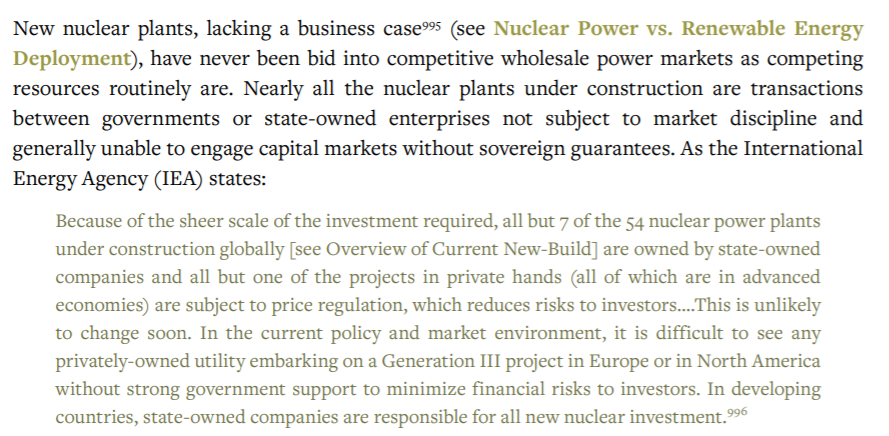🤔 What could be the role of nuclear in the climate transition?
Some findings of the recent @nuclearreport by @MycleSchneider @ShaunBurnie @macfound @boellfrance [pdf: https://t.co/OXnk0MtJ77], thanks to @MathiasB9 for the synthesis in Dutch [https://t.co/ykDzNN0Yiu]
/thread 👇
[1] Based on historical numbers, nuclear appears to be too slow to save the climate https://t.co/tmHpmhF6Bs

[2] Currently, the rate of nuclear installment is barely sufficient to keep historical capacity running https://t.co/iMTDGmFr8V

[3] Fast built-up of renewables already overtakes nuclear-built up times of some countries. Wind energy installment went especially fast in some countries (Scotland for the win) https://t.co/YxTyePkEJP

[4] Electricity from nuclear is 3 times as expensive than renewables https://t.co/5t9EZfliOm

[5] Therefore, companies invest more in renewables then in nuclear https://t.co/JB6IOAd2BL

[6] Energy savings and renewables give much more CO2-reduction per euro compared to nuclear https://t.co/aTq7fyyvKv

[7] Only state companies are still building nuclear (which is not really an argument in favor / against, merely an observation) https://t.co/u2poZZgXGE

[8] Even if the nuclear energy production process would be free, it would still be too expensive compared to renewables because of additional non-energy production related costs. https://t.co/yYGFKmiW7j

[9] Therefore, nuclear is getting pushed out of the market
Also explained, including for other countries, at @business :
Among other graphs: currently cheapest energy generation tech per country https://t.co/mUkzbKdY9h
[10] For an overview of historical state energy support, see Ecofys. KPMG, the Centre for Social and Economic Research (CASE) and CE Delft study from 2014 :